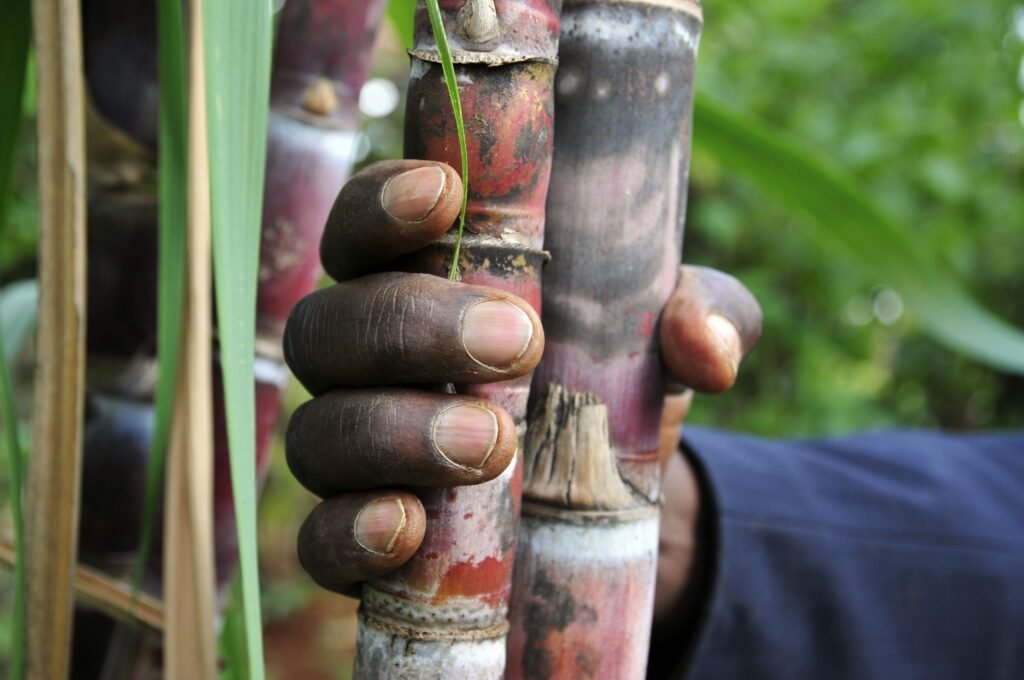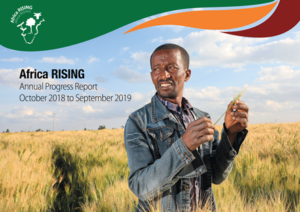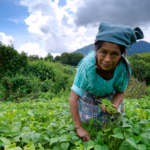By Marion Wagaki, Rootooba , 7 July 2020
The Kenyan government is revitalizing a multipurpose sugar cane industry that is efficient, diversified and globally competitive through enhanced industry competitiveness, cost reduction strategies and a strengthened regulatory framework.
According to Agriculture, Livestock and Fisheries Cabinet Secretary Peter Munya, the continuing gap between production and consumption of sugar in Kenya is not a desirable situation and the government is now taking a deliberate effort to revive the sugar industry to make the country competitive in the sugar value chain.
The Sugar industry is a significant employer and contributor to the national economy with its most substantial contribution being the salient contribution to the fabric of communities and rural economies in sugar belts.
Because of this, Munya recently stated that the Cabinet had approved debt write off owed to the government and the former Kenya Sugar Board Commodities Fund as well as grower’s debts as at 31st December last year.
All tax penalties and related interests accrued as at 30th June 2009 and any additional interests and penalties that have accrued since then have also been written off.
The total sugar debts government will waive stand at Ksh62.5 billion categorized as Ksh58 billion in loans and Ksh 4 billion as interests accrued as at June 30, 2009.
To boost value addition, increase farmers’ incomes and improve competitiveness and service delivery in the sugar Sector, the CS noted that Cabinet had also approved to lease off five state-owned sugar factories.
“The factories will be leased through long term leases of at least 20 years under Right of Use (ROU) on a firm commitment that the lessee will re-develop and operate the factory to meet the government’s objective of higher farmer’s income and increased profitability through the production of ethanol and generation of power”, Munya said.
The five factories slated for leasing are Chemelil sugar, Miwani and Muhoroni Sugar Company both under receivership, Nzoia sugar company and South Nyanza sugar company.
Munya explained that the idea behind leasing was for the government to invite investors with experience in the global sugar industry with a focus on sugar as the main product and co-production of ethanol, co-generation of power and value-added products such as industrial sugar, pharma sugar and sugar cubes.
Munya noted that the ministry had completed the revision of the sugar import and export regulations which have already been forwarded to the AGs office for gazettement while the general sugar regulations 2020 were gazetted on the 27th of May 2020.
The CS noted that the country would soon be faced with a sugar glut occasioned by increased importation and eventual collapse of the industry, a disincentive to farmers and investors. The government has subsequently put in remedial measures and has suspended with immediate effect imports of all brown sugar into the Country as well as pre-shipment approvals and extensions of all sugar import permits until further notice.
“We are further prohibiting the importation of raw cane with immediate effect and all applications for brown sugar imports shall also be subjected to the sugar imports/exports regulations that are soon to be gazetted”, he said
He explained that the uncoordinated importation of raw cane and brown sugar had rendered Kenyans mills uncompetitive.
“Ex-factory prices for the mills remain at Ksh 4,200 per 50kg bag. The price per ton is Kshs 85,260 compared to the Cost Insurance Freight (CIF) for imported sugar which stands at Ksh60, 117. This scenario clearly explains why Kenyan sugar is struggling to compete with imported sugar in the local market”, the CS said.
He observed the influx of illegal importation of brown sugar from Uganda through the Busia border with indications of unscrupulous traders taking advantage of the COVID 19 curfew hours to sneak unlawful imports into the country at night.
He further said that some millers who had obtained temporary permits to import raw cane from Uganda for a limited period of three months (September to December 2019) had illegally continued to import raw cane, a trend that would affect livelihoods of Kenyan farmers along the sugar belt whose crop is ready for harvest.
“I have directed the Sugar Directorate of Agriculture and Food Authority (AFA) to ensure that the new sugar Importation guidelines give no provision for the extension of existing brown sugar import permits”, Munya said.
Kenya’s sugar imports are mainly from COMESA following the 2002 sugar safeguard. This year Kenya has imported 157,529 metric tonnes of brown sugar from COMESA between January and March. AFA has additionally received requests to import a total of 586,00 Metric Tonnes which is yet to be approved.
At the moment sugar consumption in Kenya is approximately 1 million tonnes per annum while the country imports between 350 million metric tonnes and 400 million metric tonnes.








1 Comment. Leave new
[…] Wagaki, M. (2020). Kenya heightens sugar industry reforms to streamline the country’s ailing sugar sector’, rootooba, 7 July (https://www.rootooba.com/kenya-heightens-sugar-industry-reforms-to-streamline-the-countrys-ailing-su…). […]